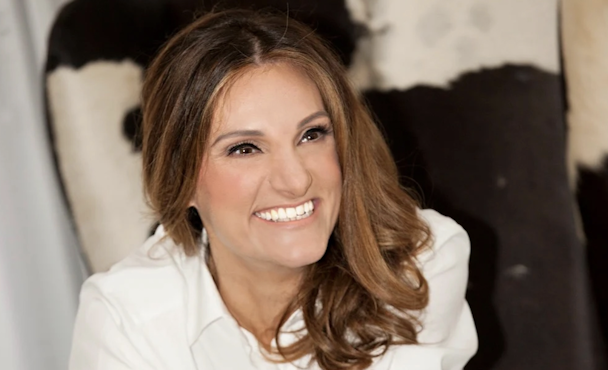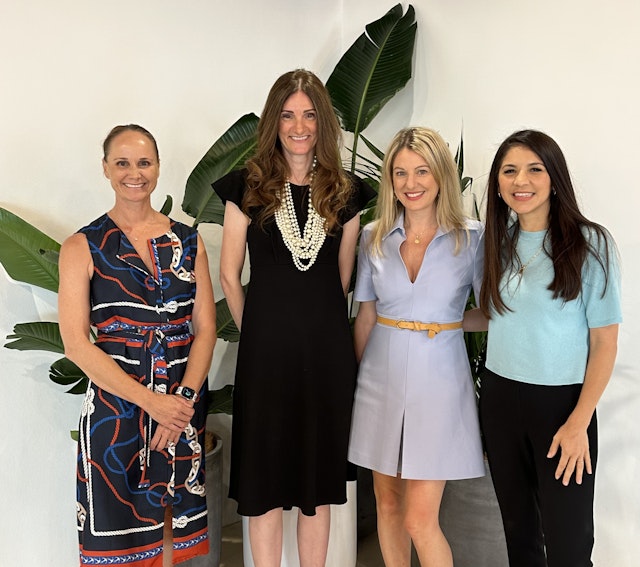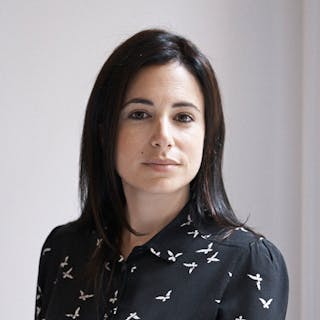From a boys club to 50/50 gender parity: How WPP in AUNZ transformed its leadership
When WPP Australia and New Zealand president Rose Herceg stepped into the role 12 months ago, the business was a very different beast. Herceg has lead a major transformation, which has seen the agency achieve a 50/50 gender parity in senior leadership roles and a major cultural change to boot. The Drum sat down with Herceg to discuss the changes.

WPP Australia & New Zealand president Rose Herceg has overhauled WPP's local operations since taking the helm 12 months ago
Just 15 years ago, Australia’s advertising industry was viewed as a boy’s club. For a very long time only a handful of Australia’s large agencies were run by women, and those women were rewarded for their success with unflattering nicknames and tokenistic treatment by the media.
Fast forward to 2023 and things are, thankfully, very different. The last decade has seen a steady flow of women rise the ranks to assume leadership positions across the industry.
The progress is promising and the trend is upward, however, there is still significant work to be done. Figures from the Advertising Council of Australia’s (ACA) Salary Report in 2021 revealed that women account for 27% of senior management roles compared to 73% of men.
But, if Billie Jean King’s iconic words: “You have to see it to be it” are to be believed, then the transformation of WPP’s Australian and New Zealand business under president Rose Herceg is further proof of the power of representation.
Herceg stepped into the top job in February 2022, assuming responsibility for the holding company’s nine networks of agency brands. Her elevation after serving as WPP’s chief strategy officer for six years signalled a significant change for the business.
Under her watch, WPP in Australia and New Zealand has transformed from a notorious boys club to one of the more progressive organisations in the country, in terms of the number of women in senior leadership positions and the inclusivity policies in place.
“Since I've been in the job, we're at 50/50 parity for the very top jobs at WPP, which is pretty great, I think, in a pretty fast amount of time,” Herceg tells The Drum.
Not only are women occupying a significant number of senior roles, but they are also running most of WPP’s biggest and most profitable brands. In addition to Herceg and WPP chief strategy officer Katie Rigg Smith, there’s GroupM CEO Aimee Buchanan, Group M chief investment officer Melissa Hey, MindShare CEO Maria Grivas and Essence MediaCom CEO Pippa Berlocher.
WPP’s next largest businesses Ogilvy and AKQA are also led by women CEOs with Sally Kissane at the helm of Ogilvy and Alisia Muscat running AKQA. There’s also Amelia Tipping, managing director Hill + Knowlton, Pamela Klioufis, CEO at BCW plus a significant number of women in senior leadership teams across the agencies.
“The question I often get asked is "Rose, why have you selected or why have we approached those people?" When we looked at those leaders, we looked for the best people for the jobs, and our best people happen to be the people that are in the roles, and they happen to be women. And that's the way that we look at it. It's a meritocracy, we always want to get the best talent for the job,” says Herceg.
“It’s mathematics,” she continues. “The thing I often say is that it stands to reason that if 50% of the population is female, then 50% of our talent should be female at the very top.
“If you're half the population, then half of the really talented people are going to be women. I think women just need other women to back them and to let them know that there's a sisterhood and that they're there because of the meritocracy.
“I want our best people to be running our businesses and that's always top of mind for me, because we need to deliver and we need to be good at what we do. But ultimately there should be equal representation because I don't think that the talent is any less for women."
Another of the other significant changes, Herceg has helped usher in has been the overhaul of the holding company's diversity and inclusion policies in areas such as LGBTIQA, parental leave and of course, gender.
“I think that's a really critical thing to look at,” says Herceg. “WPP is now the inclusivity Employer of Choice and that really matters not just for gender, but for all pieces of inclusion.
“That's how you create a high-performing culture. We're running a business where we want to be successful, we want to grow and the best way to grow, and get people to be high-performing, and part of a winning culture, is to build the gig and their job and their career around their whole lives.
“From my point of view, these are fantastic policies for society, but they're actually fantastic for a winning business. And I think that's the critical component is that we're not doing them in and of themselves, we're doing them as well, because they lead to our people being just happier, which is great.”
It's impressive work, but is it because of her gender? When asked if she believes the policies and gender parity comes more naturally because women understand the challenges better, Herceg disagrees.
“I would have thought that but the male allyship that we get through the businesses has been very surprising.” Herceg says many of the men in WPP are “wonderful feminists” who take parental leave and balance the family load with their partners.
“Before the job I would have said, "Yes, women are more naturally instinctive on how to make all this work". In the job given the amount of traffic I'm getting from men, I would say no. Which is progress, right?”
However, it’s not just policies and smart hiring. There’s also been a significant change in the style and manner that WPP agencies operate which has been welcomed by clients and the broader industry. The culture is viewed as less hierarchal and clients believe there is less bullshit and a stronger focus on the important things.
“One of the biggest compliments I get from clients is “Rose, all of the chitchat and the buzzword bingo, and the nonsense is gone. You’re focusing on what matters that drives sales and drives brand awareness and drives NPS scores.” That is the biggest compliment I can get when people tell us we're straight shooters who cut to the chase, deliver, and focus on the right things - there’s no better compliment.
“I get a real kick out of when a client says "Rose, it's just refreshing, you’ve got smart people”, many of whom are women, for sure, but they want smart people helping them drive the businesses to grow. That's it. They win, we get paid, we win we grow, we only grow when our clients grow, we go backwards if our clients go backwards. So, to me, that is the barometer. Are they talking about refreshing and modern and natural? And egalitarian? These are great words. And I haven't had any of the things that potentially perhaps were stereotypes with WPP.”
Advertisement
As part of our International Women’s Day coverage, The Drum asked Herceg and several of the WPP agency leaders to share what the day symbolises to them and whether we still need a dedicated day to celebrate women?

Maria Grivas, CEO, Mindshare Australia and New Zealand
In an Australian context, we're very privileged in our access to education, our access to employment, our access to corporations that have equitable policies, is very well defined and pronounced in comparison to other countries, other cultures, other societal factors, where that's not the case. I think for that reason, having a marker like International Women's Day to celebrate the success of women to demonstrate the power of representation, and to acknowledge the vital role that women play to the economy, to societies to that notion that, you know, you empower a woman, and then the whole community thrives. I think that's still so relevant and important. And I think, if we just constantly think about these moments, in a context that's localised, maybe, there is a question around it, but we are part of a global community, and we do have accountability to how you know, women thrive globally. A day like International Women's Day, which allows us to represent all of the great work that we're doing, and all of the progress that we've made, I think is incredibly important for reiterating how important it is to continue on that flight.
Advertisement
Alisia Muscat, CEO, AKQA Australia and New Zealand
I know the argument against [International Women’s Day] is that we should be doing it every day, and of course we are. But I think as leaders it’s an opportunity to reflect on what progress we've made each year and reflect on the environment that we've created and the opportunities that we are providing for our team. I think that reflection and accountability is really important. How the day feels for me has evolved over time, as I've matured and as I understand my role as a mother of three girls and as the leader of a big company. I’m really thankful for all the changes being made for the daughters that I'm raising, because they can't believe things, like how women couldn't vote. So, I feel very grateful that these initiatives happen to re-energize us and hold us accountable.
Suggested newsletters for you
Amelia Tipping, managing director Hill + Knowlton
International Women’s Day is a great opportunity to have important conversations about how women can juggle careers and families. Those coversations are taking place both at work and at home. My eldest son, he's 10, he asked me why we're there is International Women's Day, because he doesn't get it because he sees everything as balanced. Hopefully, in 10 years’ time, we won't need an International Women's Day. I know the three boys in my house see us as equal. I am the one that is bringing home more money than my husband, and I love that my children see that and that's the way it is in our house. And my kids sees it as no different. I think they’re teaching them the same thing in schools too. So, I think International Women's Day is important because it opens a dialogue in our home. And the dialog is why, which gives me an opportunity to tell them what's happened from a historical perspective and why this day does exist.
Rose Herceg, president, WPP Australia and New Zealand
I would love to think that 30 or 40 years from now, there is pure equality in every measure of society that we won't need it. That the little girl that's born today, has a place in society where her ability, her talent in a meritocracy is rewarded, and gender becomes less relevant right across the board. That's the ultimate ambition for me, because that's when you know when you're not talking about it or calling it out that you don't need one. That means you're equal. But for now, we need one, because we need to make up the distance, they'll come a time hopefully, when it will be redundant.
Every year as International Women’s Day comes around, I get dozens of phone calls and emails from women in their 20s and 30s who work at WPP and want to talk about their careers. This day helps signal to women that they need to have a plan for their life and for how they shatter the ceiling. It forces a level of conversation that is practical and specific, and purposeful. I think it just gets all of us, as women, to figure out how we get what we want to get.

